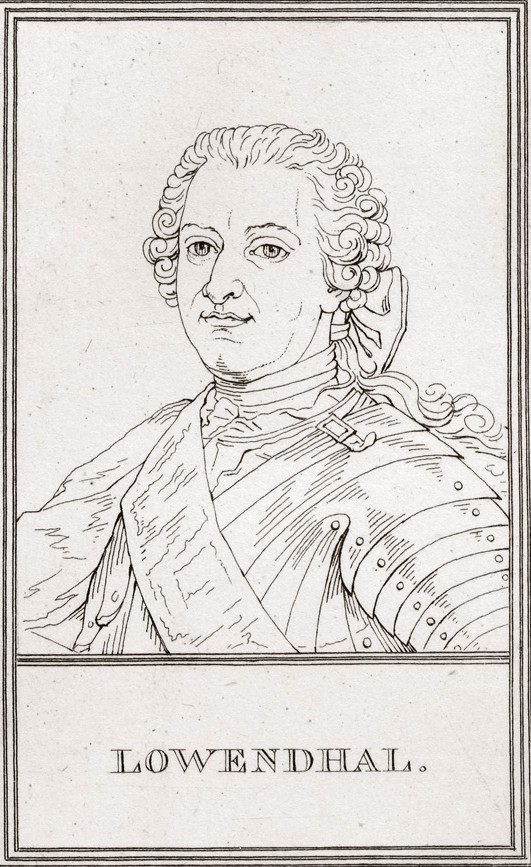In the 17th century, the French army was a formidable opponent. France produced plenty of eminent soldiers herself; Turenne, Condé, Luxembourg, Créquy etc. However, the glittering standards bearing the fleur-de-lys attracted likeminded warriors from other nations. While obviously not in the majority, the foreign soldiers could be given the same honours as their French counter-parts; including the title of Marèchal. These were some of the foreign soldiers who volunteered for the French army in the 17th and 18th century.
Armand-Frédéric de Schomberg, Duc de Schomberg
Born in Heidelberg, Armand-Frédéric was a co-patriot of the second Madame, Elizabeth Charlotte. He entered the French army in 1635, eight years before the birth of Louis XIV. During the Fronde, he served under Turenne with the rank of maréchal de camp. Despite having served Louis le Grand in his fight to maintain royal power, that same power would eventually force him to leave France. Armand-Frédéric was a Protestant and refused to convert to Catholicism - as a consequence, he was obliged to leave France after the revocation of the Edict of Nantes in 1685.
 |
| Armand-Frédéric |
Charles O'Brien, Vicomte Clare
Originally an Irishman, Charles entered the French army as a colonel and would fight against Spain in 1718. He would be awarded the title of maréchal de camp after having participated in the War of the Polish Succession and later the Battle of Fontenoy in 1745. Besides his new title, he was also invested as a knight of the Order of Saint-Louis in the chapel at Versailles.
Conrad de Rosen, Comte de Bolweiller
Conrad was born in Livonia, then under Swedish control. Initially, he entered the Swedish army but was exiled when he killed an officer in a duel. He used his relative's, Reinhold Von Rosen, influence to gain a place in the French Army where he would excel on several occasions, including the Siege of Cambray where he was wounded. While he was never awarded the title of Maréchal, he was promoted to general.
 |
| Conrad |
Donald Cameron
A Scotsman by birth, Donald Cameron was the chief of Clan Cameron but had to flee Scotland after the Battle of Culloden - in which he was severely wounded. He was received by Louis XV who allowed him to enter the Regiment of Albanie and granted him a knighthood in the Order of Saint-Louis. However, he would not serve in the French Army for long as he did in 1748.
 |
| Donald |
Frantz Adam Karrer
Frantz was born in Alsace, which was not French at the time, but first entered French service in 1686 at the age of 20. He was a prime example of how a commoner could raise himself up through the armed forces. When he began service, he was an officer cadet but rose through the ranks as lieutenant before buying a half-company of his own in 1709. He would later raise a regiment of foot-soldiers which would be given his name; he would finally become a brigadier before handing over his regiment to his son.
Josias Rantzau, Comte de Rantzau
The Comte de Rantzau was born in Denmark where he would acquire a military background - this he would use in the service of the Danish king, the Prince of Orange, the king of Sweden, the Holy Roman Empire and finally France. He partook in the Thirty Years' War, after which he was made Marèchal de France.
Maurice de Saxe, Comte de Saxe
Born in Lower Saxony, Maurice would partake in both the War of the Polish and the Austrian Succession. In the latter, his assault on Prague spread his name throughout Europe - and resulted in Louis XV awarding him the title of Maréchal de France. It was his achievement at the Battle of Fontenoy - where Louis XV himself was present - that would cement his status at the French court. His strategy secured a French victory and the French king awarded him the elaborate Château de Chambord for life.
| Maurice |
Johann Nicolas Luckner, Baron de Luckner
The Bavarian Luckner spent his first years as a soldier in the armies of Bavaria, the Netherlands and Hannover. Despite having fought against France in the Seven Years' War, he would enter into the French Army in 1763 as a lieutenant-general. Unlike the others on this list, his title of Maréchal de France was awarded due to his support of the French revolution. He would fight for the new republic but his support did not save his life - he was guillotined at the age of 71.
 |
| Johann Nicolas |
Woldemar de Lowendal, Comte de Lowendal
Another Dane, Woldemar Lowendal (or Valdemar Løvendal) received his military education in the armies of Denmark, Russia and Saxony. He would fight for France in the War of the Austrian Succession during which he would partake in the Battle of Fontenoy as well as the sieges of Ostende, Namur, Oudenarde and Gent. However, his greatest achievement was the conquest of the Dutch town Bergen op Zoom for which he was awarded the title of Maréchal de France.


No comments:
Post a Comment